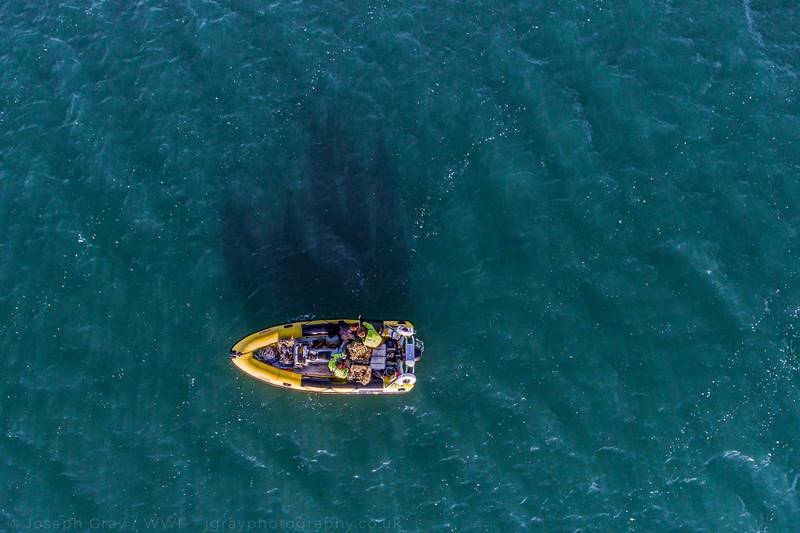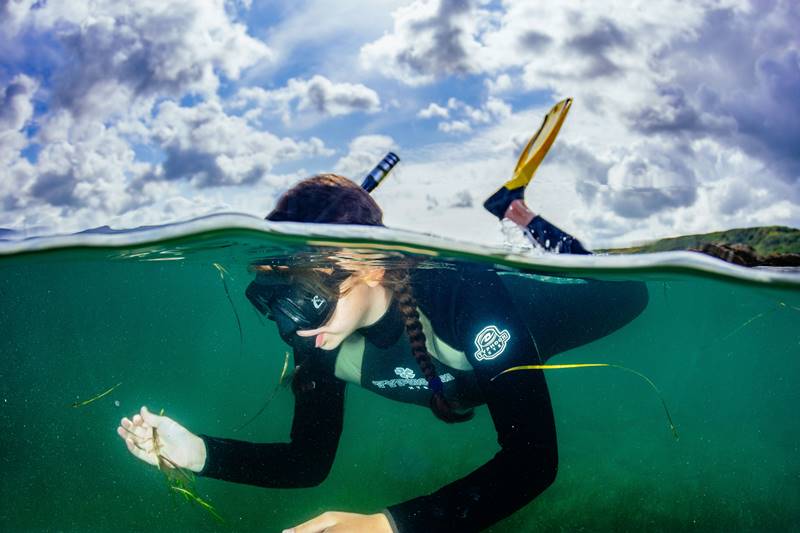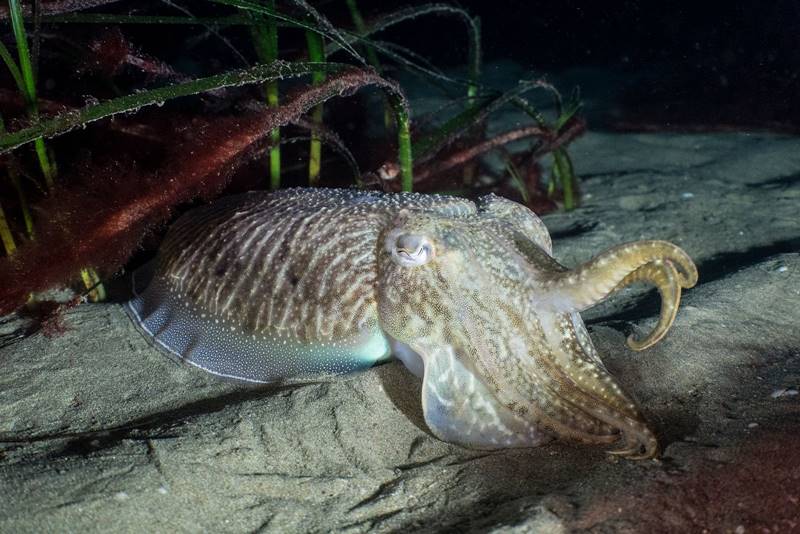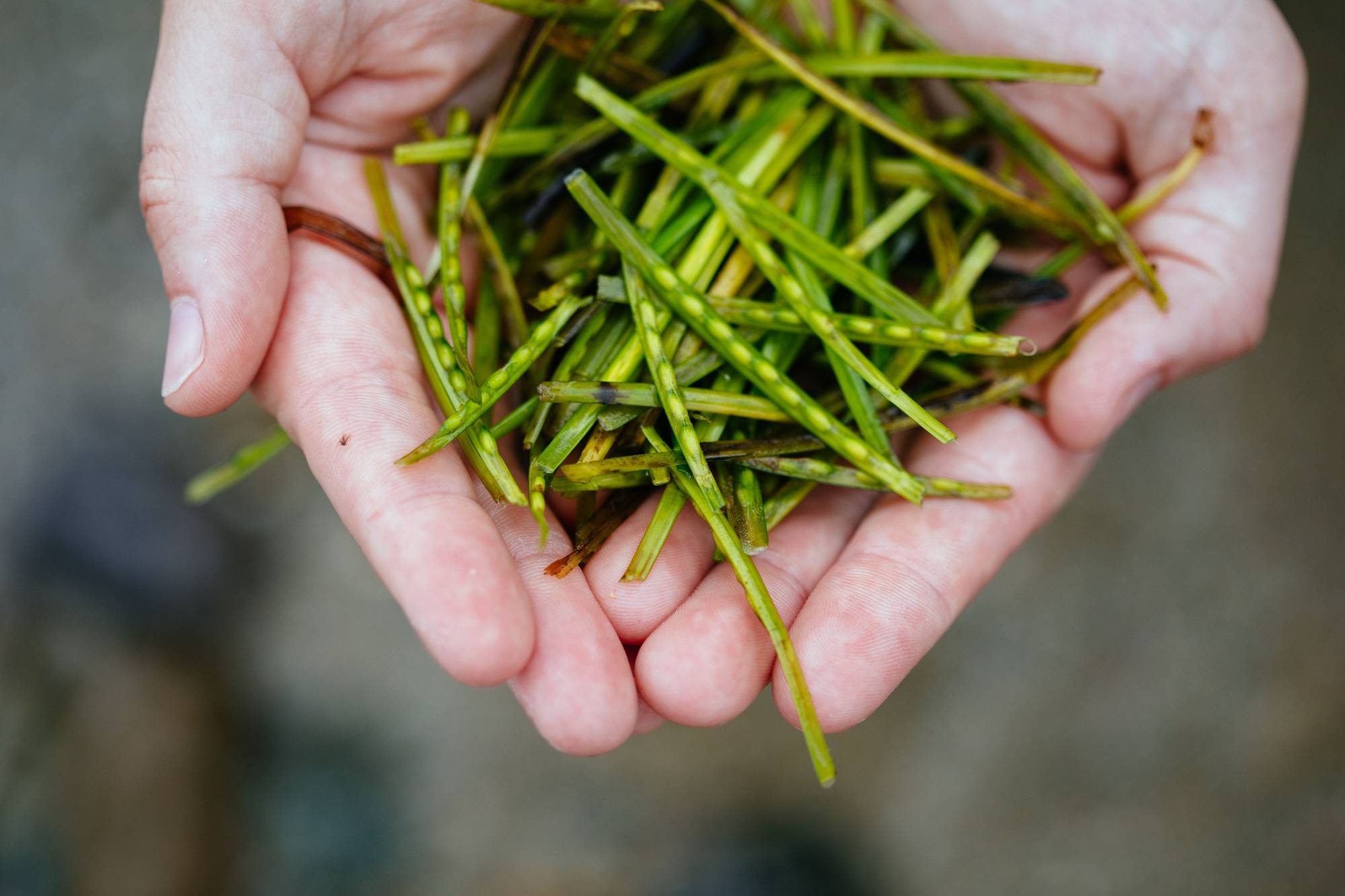
Fundraising target: £2,100 +
Funds donated: £3,500
Project: Planting seagrass (Zostera marina) homes for biodiversity. This is one of 21 projects nominated for our 21 For 21 programme.
21 For 21 Project Partner: Project Seagrass
Project Seagrass’ aim is to use education, influence, research and action to work with communities to conserve threatened seagrass ecosystems.
Find out more about Project Seagrass. Set up a 21 For 21 Fundraising Page.
About Project Seagrass
Seagrasses are flowering plants found in shallow, sheltered parts of our oceans. Like coral reefs and rainforests, these underwater gardens support some of the most biologically diverse habitats on Earth. Seagrass meadows are a threatened ecosystem which has largely been overlooked in conservation agendas. In July 2013, wanting to make seagrass science accessible to the public, and hoping to conserve seagrass ecosystems worldwide, a group of students and scientists created Project Seagrass.
Project Seagrass is now an environmental charity dedicated to the conservation of seagrass ecosystems. Using education, influence, research and action, the charity sets out to bring seagrass ecosystems forward on the climate and conservation agendas, making known the ecosystem’s services on both local and global levels.
Why is Seagrass important?
Seagrass meadows are highly efficient carbon sinks, storing up to 18% of the world’s oceanic carbon, as well as acting as nursery grounds for juvenile fish and crustaceans, forming the basis of 20% of the world’s biggest fisheries. In the UK, seagrass is home to hundreds of species including baby cod and whiting, but also the weird and wonderful pipefish, seahorses, sea scorpions and baby cuttlefish.
It is estimated that we lose an area of seagrass the size of a football pitch every thirty minutes and emissions from loss of seagrass are estimated to contribute up to 299 teragrams of carbon to the atmosphere each year. In the UK we’ve possibly lost as much as 92% of our seagrass. Poor water quality (nutrient and sediment runoff), coastal development, storm surges, disease, and destructive fishing and boating practices (including moorings/anchoring) are all contributory factors. Protection of seagrass ecosystems is vital in the face of the growing climate and biodiversity crisis.
The launch of the Seagrass Spotter app hopes to build a comprehensive database of the locations and health of seagrass meadows worldwide, using citizen science. Project Seagrass has also joined forces with Seagrass Watch, monitoring the health of a seagrass meadow off the Llŷn Peninsula in North Wales, up to four times a year.
Seagrass Restoration
Most recently, Project Seagrass played a significant role in planting two hectares of seagrass in Dale Bay, West Wales, the first such project ever to happen in the UK. Using community outreach and pioneering techniques, the restoration marks a milestone in Project Seagrass’ hopes to restore seagrass meadows worldwide. As a partner to the UN Decade of Ocean Science for Sustainable Development and hoping to partner with the UN Decade of Ecosystem Restoration, Project Seagrass has set itself the target of replanting 3000ha (30km²) of seagrass in the UK by 2030, a first for marine environmental conservation.
Seagrass is planted to create homes for biodiversity, using natural fibre hessian bags (100% biodegradable) that provide shelter for approximately 50 seeds, they then have an opportunity to germinate and to develop into seedlings. The hessian bag protects them from stormy seas and currents and ensures they’re not eaten by green shore crabs!
Using a method known as BoSS lines, seeds can be deployed and anchored into a restoration site via boat. Each bag ends up developing into around 5 new seedlings. The seeds are collected by hand, using SCUBA diving, snorkelling and wading, they are then processed and prepared using filtration towers and hand sorting in a lab, before being returned to the water. Currently the cost of materials and seeds is £20 (GBP) per bag. We wish to raise funds to deploy at least a further 105 bags.
In the face of a climate and biodiversity crisis, seagrass offers a glimmer of hope in an otherwise dark time. After years of being overlooked, seagrasses are finally being recognised as the unsung heroes of our coastal seas, carbon sequestration, fishery support, coastal protection and water filtration are just some of the benefits seagrass can offer.
21 For 21 funding can support the purchase of 105 bags of Zostera marina seeds.
Book a UK holiday cottage through our travel network.
Images courtesy of Neil Garrick-Maidment, Lewis Jefferies, Joseph Gray, Project Seagrass
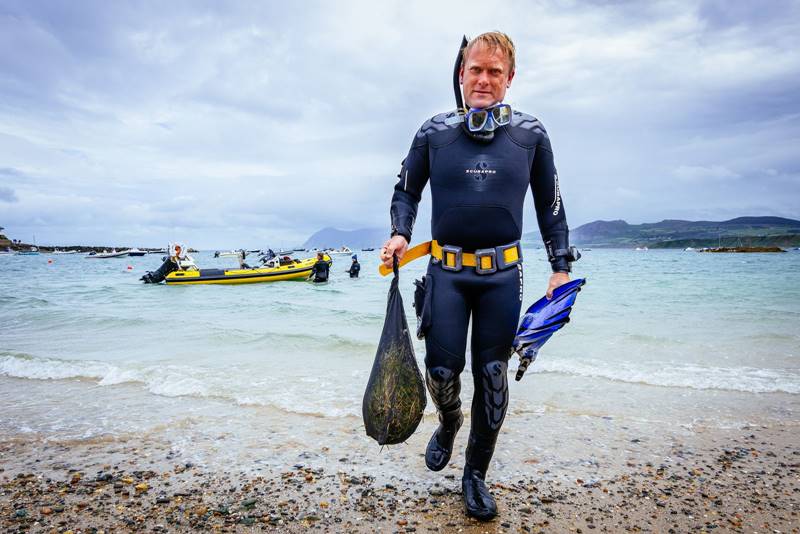
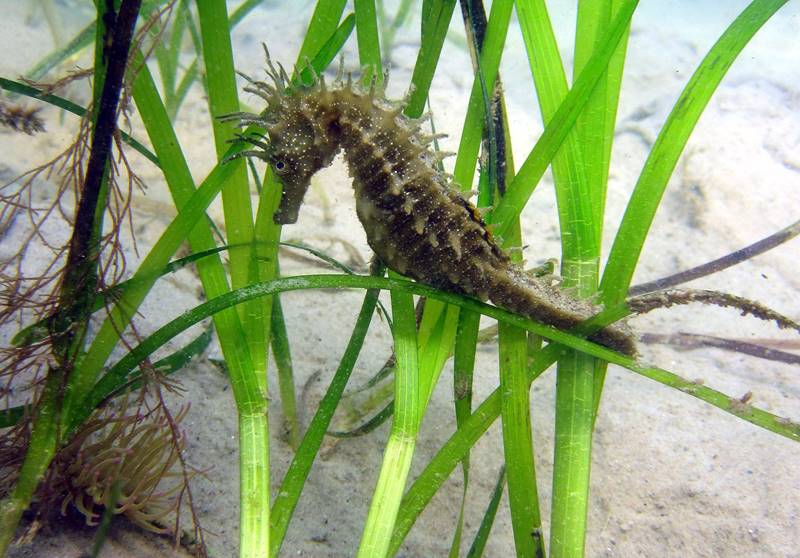
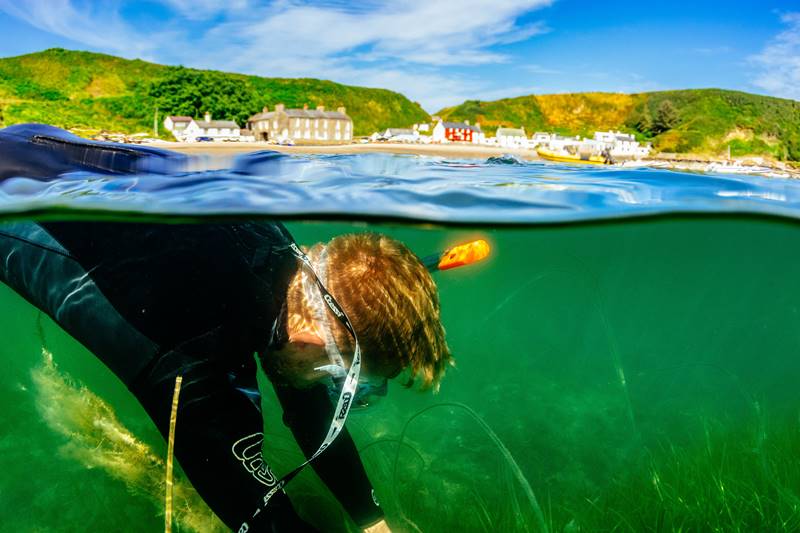
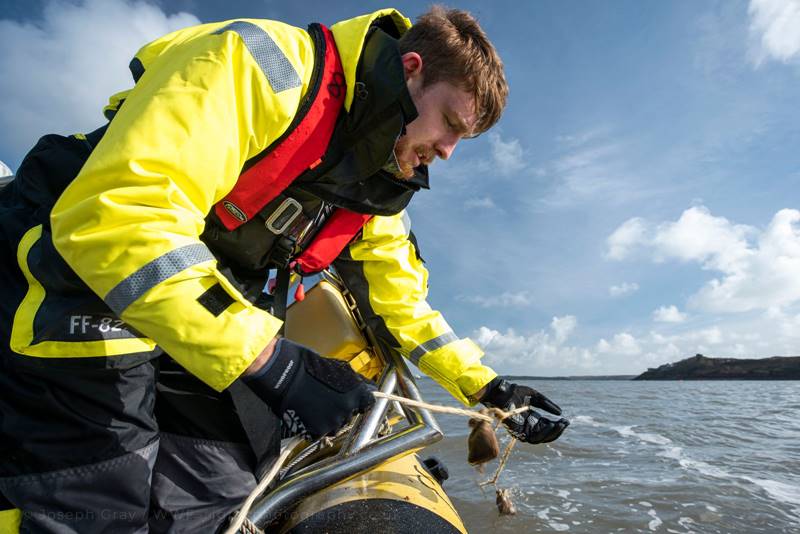
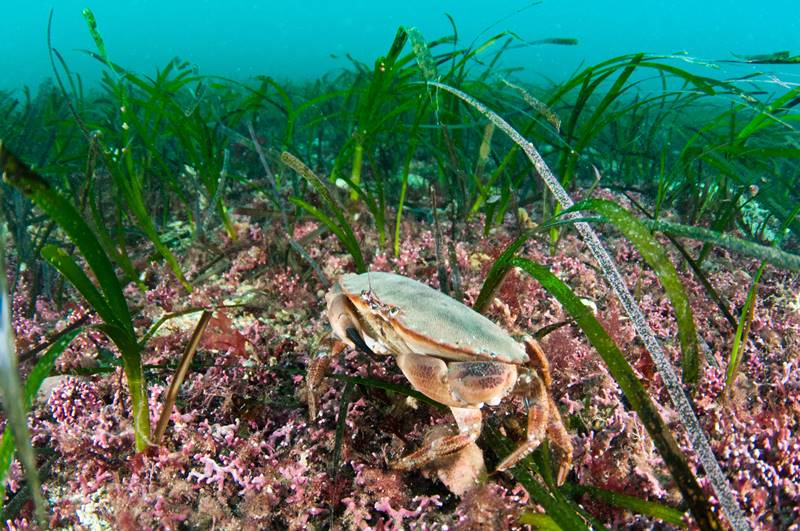
All funds raised during 2021 will contribute to the 21 For 21 Project Fund so please do sign up for a sponsored challenge (details here), support our creative initiatives, or make a donation if you are able to. Every Pound makes a difference. Thank you.
